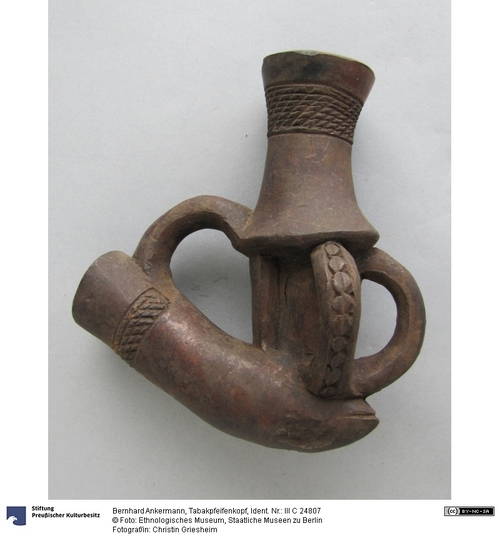Dieser Pfeifenkopf aus Ton wurde Anfang des 20. Jahrhunderts in Bamunka im Kameruner Grasland hergestellt. Er ist mit einem Muster aus Kaurischnecken verziert. Im Grasland dienten Kaurischnecken als Währung. Um 1900 rauchten Könige, Würdenträger und Familienoberhäupter im Grasland Tabak. Je höher der Rang des Rauchers war, desto prachtvoller sollte die Pfeife sein.
Um 1908 gab der Ethnologe Bernhard Ankermann (*1869 - †1943) während einer Forschungsreise nach Kamerun Dutzende von Tabakspfeifen bei lokalen Künstlern in Auftrag. Er kaufte andere Pfeifen in lokalen Märkten. Sie waren unbenutzt als das damalige Königliche Museum für Völkerkunde sie erwarb.
Sammler: Ankermann, Bernhard
en

